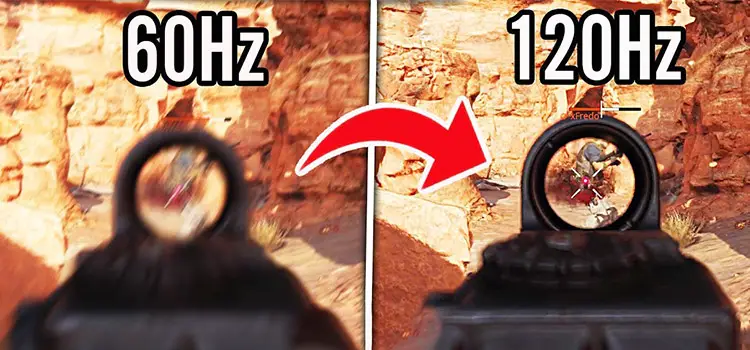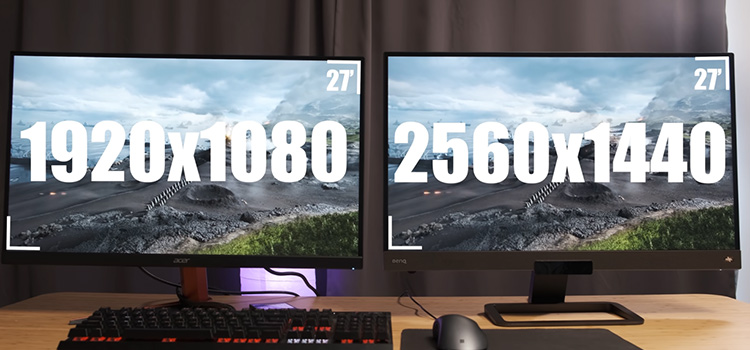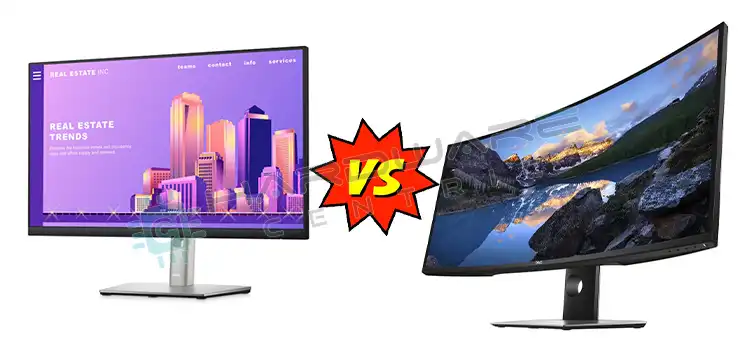1080p 120hz or 4K 60hz Refresh Rate Monitor | Is a Higher Frame Rate Better for Gaming?
For better screen resolution and vivid spectacle 4K, 60Hz suits graphics editors and regular viewers. But, professional and competitive gamers prefer 1080p 120Hz for its higher frame rates and dynamic speed.
Be it 1080p 120Hz or 4K 60Hz, choose between resolution and fresh rate depending on the smoothness needed.

Marking Differences – ‘1080p 120Hz or 4K 60Hz Refresh Rate Monitor’
1080p, 720p, or 4K indicates the resolution of a monitor or tv display. Whereas the 60Hz, 120Hz, and 144Hz indicating the refresh rate per second.
Even though they are related to each other, they are completely different in their own field.
Now, we are going to differentiate between 4K 60Hz and 1080p 120Hz monitors according to various sectors. Have a look at them –
Esports or Competitive Gaming
In an Esports scene or LAN contests where every millisecond matters, players need fast reactions with low latency and high refresh rate. In such cases, 120Hz seems inevitable and more efficient. More frame refreshing speed means more proficiency while performing.
On the other hand, 60Hz or 60 frames per second do not provide enough fluidity on the action as much as 120Hz or 120 frames per second do.
Casual Gaming or Work
If you’re a non-competitive gamer and don’t have the urgency of comparatively better refresh rates on your game, then 4K 60Hz appears to be a good choice. Moreover, you will enjoy even better resolution. Games, for instance, Minecraft, and The Sims requiring moderate frame refresh rates can function at 60Hz without any issue.
However, for the astonishing projection of the TV screen or monitor, while enjoying movies, videos, or documentaries, 4K resolution with 60fps fulfills all your needs. 4K having four times greater pixel density than 1080p delivers a comparatively nicer view.
In addition, 120fps might irritate your eyes to concentrate as it constantly changes displays at a faster pace, whereas, 60fps feels more calming, and more soothing for the sight.
Things About 4K 60Hz Refresh Rate Monitor
In terms of PS5, it can run 4K content up to 120 fps with an HDMI 2.1 input but, unfortunately, only a few HDMI 2.1 monitors are in the market. So getting a 4K 60Hz monitor with HDMI 2.0 support can be a solution in this case.
Additionally, in order to display the HDMI/DP the user plugs in, 4K demands fast driver circuits which are also expensive. In fact, 60Hz is the standard refresh rate for monitors. So, no one will purchase any monitor under 60Hz.
That’s why most of the 4K monitors keep their display changing rates at 60Hz although there are some companies producing 4K at higher refresh rates e.g. ASUS.
Which One To Prefer Between 1080p 120Hz or 4K 60Hz Monitors?
Even though these two monitors are capable of serving better visuals, obviously they are superior in some specific sectors. From the differences stated above, it is clear that 1080p 120Hz is much more compatible with professional gaming, and on the contrary, 4K 60Hz is better with casual or average gaming and creative works.
Therefore, it depends on you which one you will pick according to your work or gaming status.
Frequently Asked Questions (FAQs)
Does 120Hz Drain the Battery?
Enhancing from 60Hz to 120Hz or from 90Hz to 120Hz will notably increase battery drain. On the contrary, transferring from full HD 120Hz to QHD 120Hz or from full HD 90Hz to QHD 90Hz will not have much effect on the battery discharge rate.
Is it worth getting a 4K monitor at 60Hz?
Obviously, getting a 4K 60Hz monitor is worth it. 60Hz may seem like an average refresh rate but it is more than enough for regular computer tasking and creative work. On the other hand, the superb 4K monitor will let you have the full enjoyment of a high-quality viewing experience.
What Hz is best for 4K?
It has been found that the refresh rate of 120Hz suits better with the 4K resolution. It is true that the more the refresh rate, the more smoothness it can offer. But you cannot easily get more than 120Hz on a 4K monitor as it comes with a higher price.
To Conclude
A 1080p 120Hz monitor will serve more frames per second than 60Hz leading to crystal clear view, better responses, and excellent competitive actions while gaming. But if the user does not care about the quicker feedback and goes for the picturesque visuals, resolution, and such, 4K 60Hz is more likely to be appreciable.
Subscribe to our newsletter
& plug into
the world of PC Hardwares
![[Explained] Can 4k Monitor Downscaled to 1440p?](https://www.hardwarecentric.com/wp-content/uploads/2023/02/Can-4k-Monitor-Downscaled-to-1440p.webp)

![[Explained] How Does 1440p Look Like on a 1080p Monitor?](https://www.hardwarecentric.com/wp-content/uploads/2021/10/1440p-on-a-1080p-monitor.jpg)

![[Fix] 144 Hz and 60 Hz Dual Monitor Issues (100% Working)](https://www.hardwarecentric.com/wp-content/uploads/2021/10/144-Hz-and-60-Hz-Dual-Monitor-Fix.jpg)
![[EXPLAINED] Is 32 Inch Too Big for Gaming?](https://www.hardwarecentric.com/wp-content/uploads/2023/07/Is-32-Inch-Too-Big-for-Gaming.webp)
